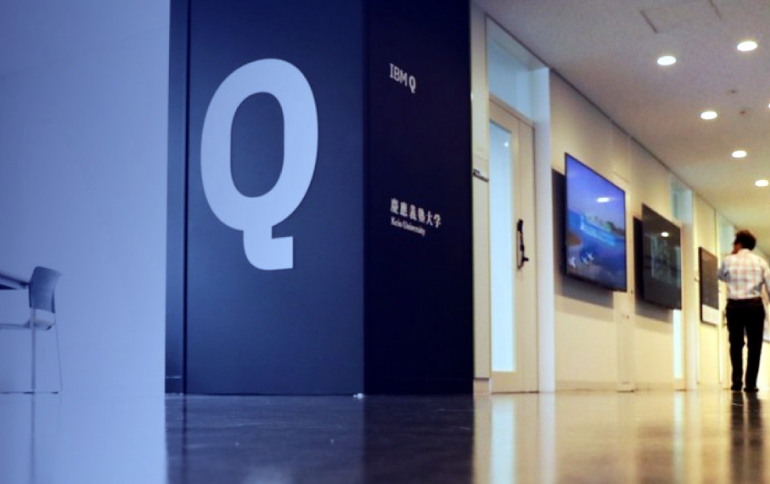
CES: IBM Working with Over 100 Organizations to Advance Practical Quantum Computing
IBM said at CES 202 that the IBM Q Network includes over 100 organizations, across multiple industries, including: Airline, Automotive, Banking and Finance, Energy, Insurance, Materials and Electronics.
Anthem, Delta Air Lines, Goldman Sachs, Wells Fargo and Woodside Energy are among the latest organizations to begin to explore practical applications using quantum computing.
In addition, a number of academic, government research labs and startups have also joined the IBM Q Network, including the Georgia Institute of Technology (Georgia Tech), Stanford University, Los Alamos National Laboratory, AIQTech, Beit, Quantum Machines, Tradeteq and Zurich Instruments.
These organizations join over 200,000 users, who have run hundreds of billions of executions on IBM's quantum systems and simulators through the IBM Cloud. This has led to the publication of more than 200 third-party research papers on practical quantum applications.
IBM also recently announced the planned installation of the first two IBM Q System One commercial universal quantum computers outside the US – one with Europe's leading organization for applied research, Fraunhofer-Gesellschaft, in Germany; another with The University of Tokyo. Both are designed to advance country-wide research and provide an education framework program to engage universities, industry, and government to grow a quantum computing community and foster new economic opportunities.
As part of the network, these organizations now have access to IBM's quantum expertise and resources, open source Qiskit software and developer tools, as well as cloud-based access to the IBM Quantum Computation Center, which now includes 15 of the most-advanced quantum computers commercially available to explore practical applications for business and science, including a 53-qubit system.
"We are entering the quantum age, and IBM is working with our partners to apply this new technology in a way that can solve major business and societal problems," said Dario Gil, Director of IBM Research. "Quantum computing will have a profound impact on key issues like finding new materials to capture carbon in the global fight against climate change, as well as the discovery of new chemistries that might power more energy efficient batteries."
Health benefits company Anthem will be expanding its research and development efforts to explore how quantum computing may further enhance the consumer healthcare experience. Quantum computing has the potential to analyze vast amounts of data inaccessible to classical computing, while also enhancing privacy and security.
Delta Air Lines has agreed to join the IBM Q Hub at North Carolina State University. They are the first airline to embark on a multi-year collaborative effort with IBM to explore the potential capabilities of quantum computing to transform experiences for customers and employees and address challenges across the day of travel.
Delta's CEO Ed Bastian delivered the CES 2020 opening keynote address that focused on how Delta is transforming travel into a part of the journey to look forward to. The airline is using technology to extend the warmth of its people to non-traditional airline touchpoints and delivering innovative experiences that reduce stress across the travel day.
The Georgia Tech university has agreed to join the IBM Q Hub at the Oak Ridge National Laboratory to advance the fundamental research and use of quantum computing in building software infrastructure to make it easier to operate quantum machines, and developing specialized error mitigation techniques. Access to IBM commercial quantum systems will also allow Georgia Tech researchers to better understand the error patterns in existing quantum computers, which can help with developing the architecture for future machines.
The Los Alamos National Laboratoryis joining as an IBM Q Hub to advance its research efforts in several directions, including developing and testing near-term quantum algorithms and formulating strategies for mitigating errors on quantum computers. The 53-qubit system will also allow Los Alamos to benchmark the abilities to perform quantum simulations on real quantum hardware and perhaps to push beyond the limits of classical computing. Finally, the IBM Q Network will be an educational tool, giving students thr opportunity to develop innovative research projects in the Los Alamos Quantum Computing Summer School.





















